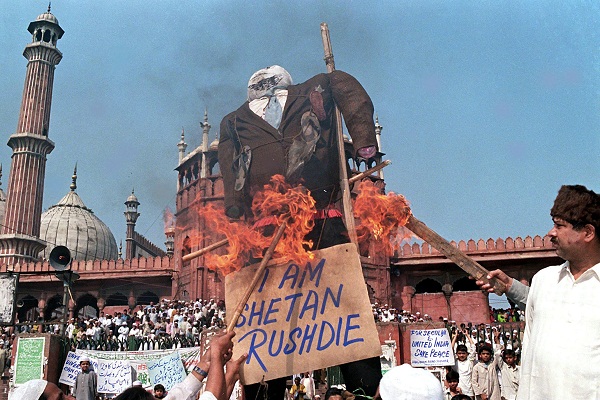The publication of Joseph Anton (tomorrow), Salman Rushdie’s much anticipated memoir, has given newspapers cause to revisit The Satanic Verses. The commentary focuses on the bloodthirsty and backward response that the book continues to provoke. The novel has become a totem in various political and religious ‘debates’ (a word that is hopelessly misplaced in this perverse context of fatwahs and feeling).
It is appropriate that Rushdie is celebrated as a champion of liberalism and rationality. There is no doubt that The Satanic Verses is among the most important books ever written. But, is it one of the finest? Despite the reams of brilliant and brave writing on the Rushdie affair, the question is seldom asked. The book has outgrown the placid concerns of criticism, perhaps being more talked about than read — certainly, one suspects, by those who threaten vengeance on its author and his supporters.
The late Francis King reviewed The Satanic Verses for the Spectator in October 1988, and he concluded:
‘So much of this novel is so good in the force of its intellect, the richness of its invention and the eloquence of its writing, that it is both bewildering and exasperating that one should, at the close, be left with a feeling of dissatisfaction… It is as if a master craftsman had carved all the separate pieces of some imposing piece of furniture with consummate artistry.

Get Britain's best politics newsletters
Register to get The Spectator's insight and opinion straight to your inbox. You can then read two free articles each week.
Already a subscriber? Log in







Comments
Join the debate for just £1 a month
Be part of the conversation with other Spectator readers by getting your first three months for £3.
UNLOCK ACCESS Just £1 a monthAlready a subscriber? Log in